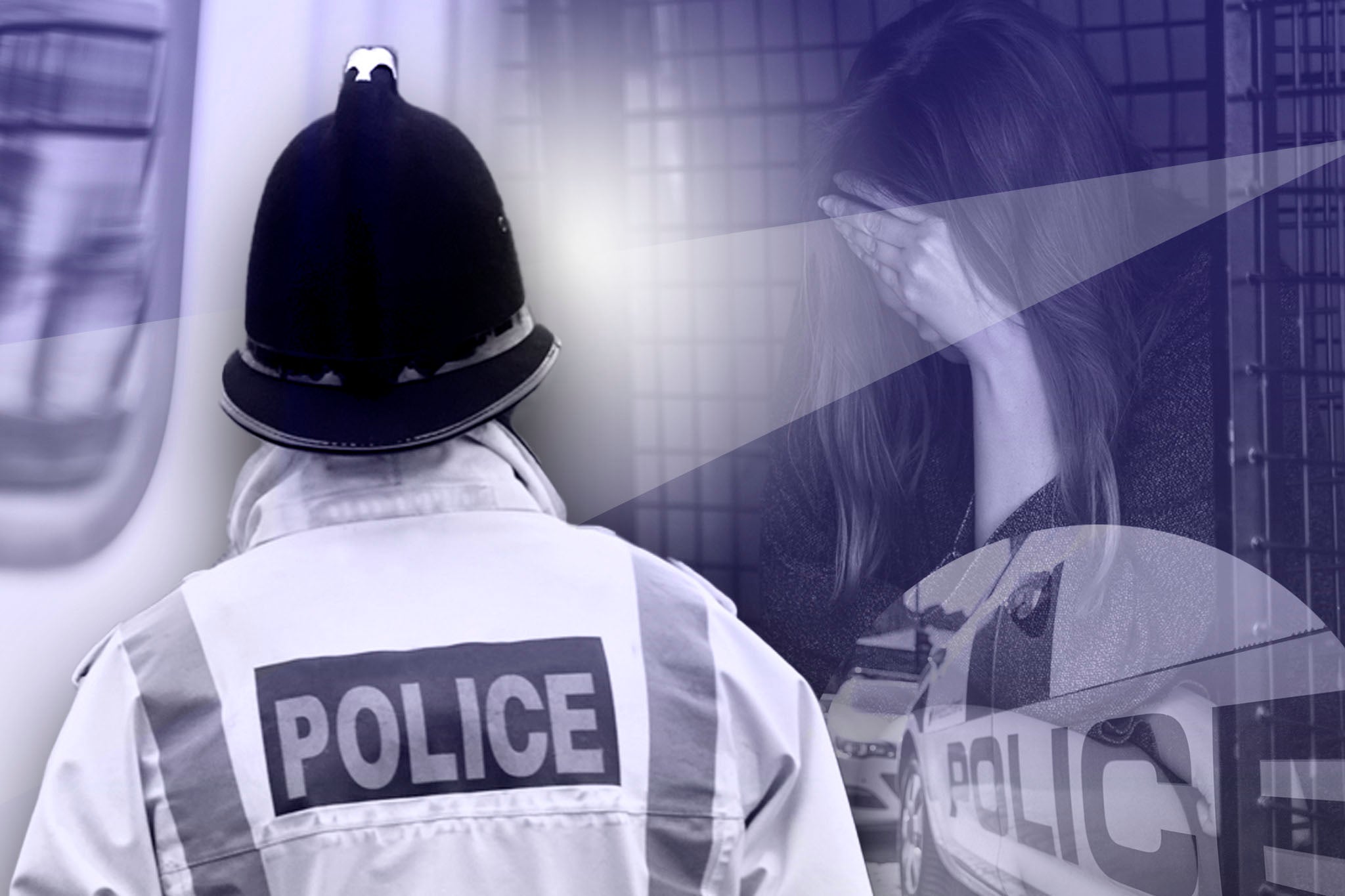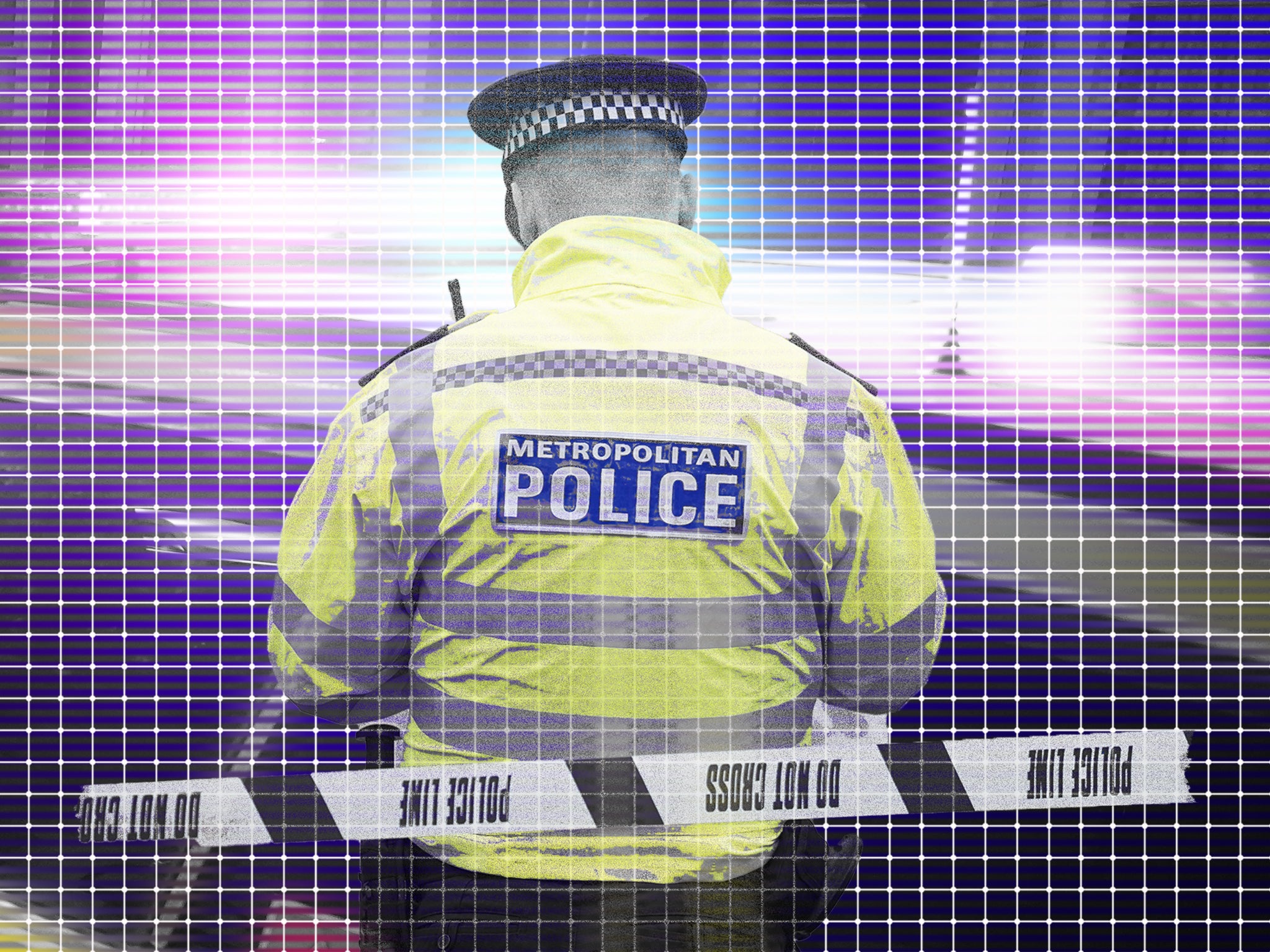Three-quarters of rape and sexual assault survivors’ mental health harmed by police investigation
Exclusive: One survivor attempted suicide twice as she struggled with poor police communication, adding: ‘They have your life in their hands’
A rape survivor has revealed she attempted suicide twice after reporting her assault, as new research finds three in four survivors’ mental health is harmed during police investigation.
The woman, aged 30, has spoken out as the largest-ever survey of rape and sexual assault survivors has uncovered the “sobering” impact poor policing has on those who come forward.
The survey of 2,000 victims in England and Wales between January and June 2023 found that four in 10 did not feel believed by police, while only 37 per cent said officers made them feel like they mattered.
Shockingly, 27 respondents claimed their attacker was a serving police officer.
The survivor told The Independent uniformed officers turned up at her home unannounced after she first reported her abuse online three years ago.
In the subsequent investigation, she struggled to keep in touch with officers, who left her calls and messages unanswered for weeks.
It was only after she confronted officers giving a talk at a public event that her attacker was finally arrested.
She said: “I would not hear from them for weeks and I found that really anxiety-provoking. At a certain point they told me they were going to arrest him [her attacker] imminently and then I didn’t hear from them for three weeks.
“For me, that was the most terrifying period of my life. That moment is so scary because that is the point where your abuser knows what you have done.
“They treat you like a number, a case. They don’t care about you and they don’t understand the impact these crimes have on you.
“I tried to kill myself twice during this case because of the way that they were handling it. And they didn’t understand. They have your life in their hands at that point and they don’t understand the gravitas of that.”

She said she “always felt on the back foot” and was forced to chase up information from preliminary court hearings. She also had to push to ensure bail conditions prevented her perpetrator from coming near her.
She added: “It was all those little things that made me feel so unsafe and scared.
“From a young age, I had been told if there’s anything wrong call the police. But this has really turned that around for me. If I were – God forbid – raped again, I would not report it to the police.”
Her story comes as experts called for police forces to listen to victims, with the survey’s findings set to be shared with Operation Soteria Bluestone – a national programme designed to transform the justice system for rape and sex offences.
Lead researcher Katrin Hohl, professor of Criminology and Criminal Justice at City, University of London, said the survivors’ testimony left her “floored”.
One survivor wrote: “I am more afraid of the police than being raped again.”
Another was forced to re-enact her attack with a police officer in a public place, while a third was left naked in front of officers after they took her clothes as evidence.
However, positive experiences also showed the life-changing power of good policing, with some respondents reporting that the kindness of officers changed their lives.

There was also evidence of recent improvement, with 60 per cent who reported in the past three months having positive police experiences versus just 36 per cent for reports made two years ago.
“Some said it saved them from suicide,” Prof Hohl told The Independent. “Some said it completely changed their life that the officers were taking them seriously and treating them with compassion.
“It was the way the officer treated them, not necessarily the outcome of the case that made the difference.”
Andrea Simon, director of the End Violence Against Women Coalition (EVAW), said addressing the trauma facing survivors who speak up is a “fundamental human rights issue”.
She added: “This revealing survey brings to light how the criminal justice system is often a site of harm for survivors of rape, with their treatment throughout the process - including being blamed and disbelieved - causing further trauma at a time when support and care are needed.”
Nicole Jacobs, the domestic abuse commissioner, called for “radical culture change” in all forces, adding: “This report shows us that victims of sexual violence at the hands of a partner describe the worst experiences with the police, leaving them less likely to report again.”
Responding to the findings, Chief Constable Sarah Crew, National Police Chiefs Council lead for rape and adult sexual offences, said police are “determined to do better for victims”.
The chief constable, who also works in the Operation Soteria Joint Unit, added: “I want to thank the survivors who took part in the victim survey. Your bravery in coming forward and talking about your experiences will form a significant part in how policing will improve their response to rape and sexual offences.
“We have taken an honest and open look at the way we work, have welcomed academics in to scrutinise it and provide us with direction for how we can improve. This is not easy, but it is vital, we are determined to do better for victims.”
Safeguarding minister Sarah Dines added said she would be encouraging chief constables to act on the findings.




